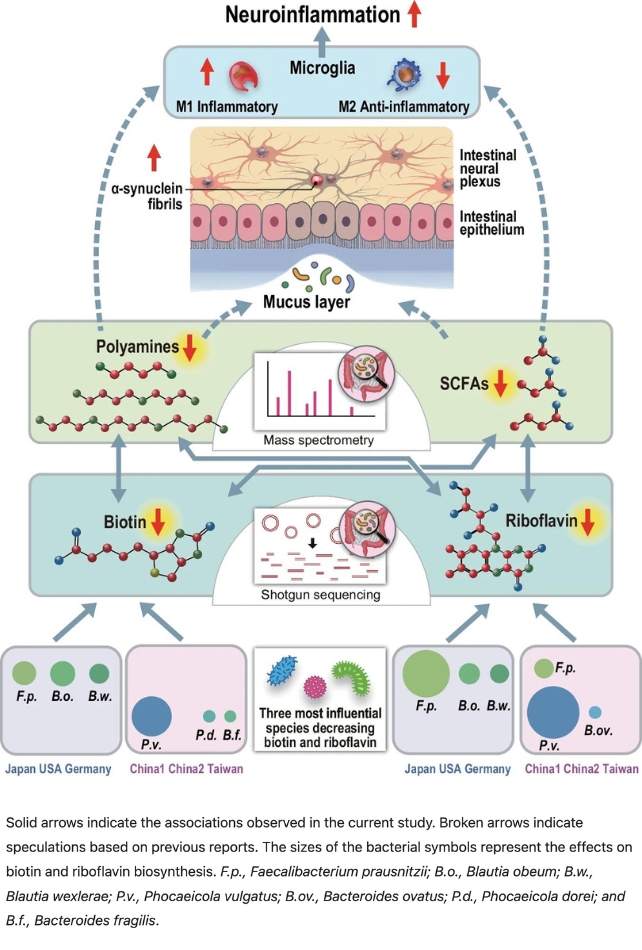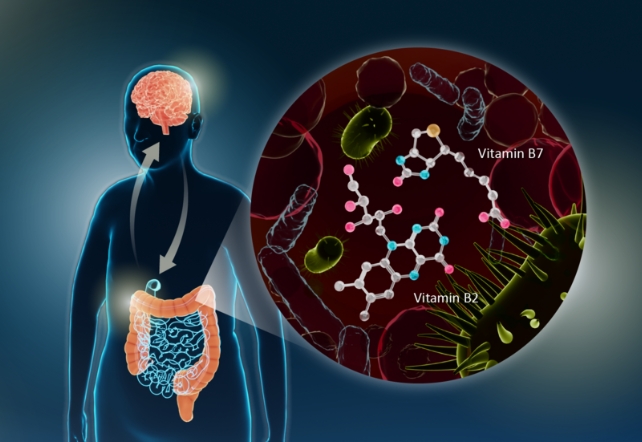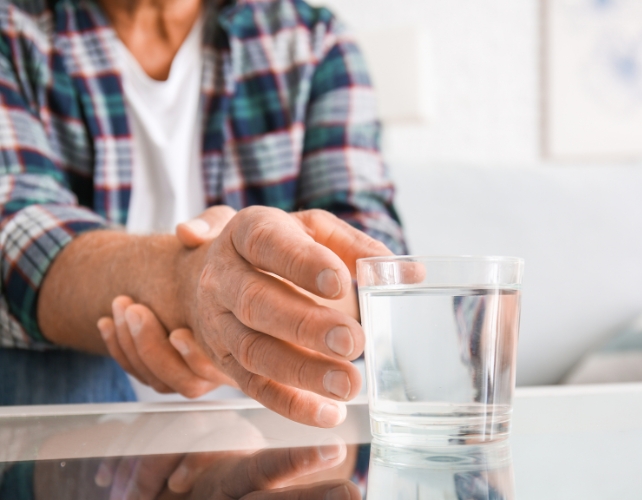Researchers have suspected for some time that the link between our gut and brain plays a role in the onset of Parkinson's disease.
A recent study identified gut microbes likely to be involved and linked them with decreased riboflavin ( vitamin B2) and biotin (vitamin B7), suggesting an unexpectedly simple treatment that may help: B vitamins.
"Supplementation therapy targeting riboflavin and biotin holds promise as a potential therapeutic avenue for alleviating Parkinson's symptoms and slowing disease progression," said medical researcher Hiroshi Nishiwaki from Nagoya University in Japan, when the paper was published in May 2024.
Related: A Tiny Peptide Can Freeze Parkinson's Proteins Before They Turn Toxic
The neurodegenerative disease impacts around 10 million people globally, who at best can hope for therapies that slow and alleviate symptoms.
Symptoms typically begin with constipation and sleep problems, up to 20 years before progressing into dementia and the debilitating loss of muscle control.
Watch the video below for a summary of the research:

Previous research found people with Parkinson's disease also experience changes in their microbiome long before other signs appear.
Analyzing fecal samples from 94 patients with Parkinson's disease and 73 relatively healthy controls in Japan, Nishiwaki and colleagues compared their results with data from China, Taiwan, Germany, and the US.
While different groups of bacteria were involved in the different countries examined, they all influenced pathways that synthesize B vitamins in the body.
The team found that the changes in gut bacteria communities were associated with a decrease in riboflavin and biotin in people with Parkinson's disease.
The researchers then showed the lack of B vitamins was linked to a decrease in short-chain fatty acids (SCFAs) and polyamines: molecules that help create a healthy mucus layer in the intestines.
"Deficiencies in polyamines and SCFAs could lead to thinning of the intestinal mucus layer, increasing intestinal permeability, both of which have been observed in Parkinson's disease," Nishiwaki explained.

They suspect the weakened protective layer exposes the intestinal nervous system to more of the toxins we now encounter more regularly.
These include cleaning chemicals, pesticides, and herbicides.
Such toxins lead to the overproduction of α-synuclein fibrils – molecules known to amass in dopamine-producing cells in the substantia nigra part of our brains – and increased nervous system inflammation, eventually leading to the more debilitating motor and dementia symptoms of Parkinson's.
A 2003 study found high doses of riboflavin can assist in recovering some motor functions in patients who also eliminated red meat from their diets.
So it's possible that high doses of vitamin B may prevent some of the damage, Nishiwaki and team propose.
This all suggests healthy gut microbiomes may also prove protective, and reducing the toxic pollutants in our environment may help too.

Researchers are constantly discovering more ways the makeup of our gut bacteria affects our health. The composition is not fixed: It varies depending on many factors, such as what you eat, your age, and your sleep quality.
We don't all respond to the same diets in the same way either, and a recent discovery helps explain why: Gut microbes that naturally produce more methane are also able to squeeze more energy and calories out of high-fiber foods.
Related: Unusual Activity in Our Guts Could Have Helped Our Brains Grow Larger
In 2025, scientists in China and the US found that being unable to sleep at night could be at least partly down to the mix of microbes in our digestive system.
Also this year, researchers found that some bacteria in our guts can absorb and store perfluoroalkyl and polyfluoroalkyl substances (PFAS), often called 'forever chemicals' for how long they linger in the environment.
"We found that certain species of human gut bacteria have a remarkably high capacity to soak up PFAS from their environment at a range of concentrations, and store these in clumps inside their cells," reports University of Cambridge molecular biologist Kiran Patil.
In theory, boosting these microbes could help reduce PFAS's harmful effects on our health.
Related: Parkinson's Disease Could Be Ignited by Burned-Out Brain Cells
Of course, in most conditions, the gut microbiome's influence is just one part of the full story.

With such a complicated chain of events involved in Parkinson's disease, it's likely that not all patients experience the same causes, so each individual would need to be assessed.
"We could perform gut microbiota analysis on patients or conduct fecal metabolite analysis," explained Nishiwaki.
"Using these findings, we could identify individuals with specific deficiencies and administer oral riboflavin and biotin supplements to those with decreased levels, potentially creating an effective treatment."
This research was published in npj Parkinson's Disease.
An earlier version of this article was published in June 2024.

